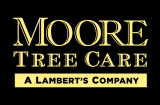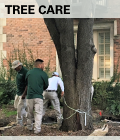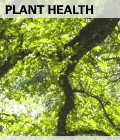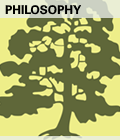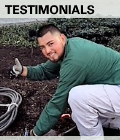Too frequently, social media is dismissed as non-academic, unworthy of sustained attention by researchers. Drawing from contributors' research, the collection constructs a social justice canvas—an innovative technique that suggests ways that principles of social justice can be integrated into teaching and assessing writing. The reader is offered a framework for ... More, The second in a two-volume set, A Theory of Literate Action draws on work from the social sciences—and in particular sociocultural psychology, phenomenological sociology, and the pragmatic tradition of social science— to "reconceive rhetoric fundamentally around the problems of written communication rather than around rhetoric's founding concerns of high stakes, agonistic, oral public persuasion" (p. 3). ... More, Edited by Beth L. Hewett and Kevin Eric DePew, Foundational Practices of Online Writing Instruction addresses the questions and decisions that administrators and instructors most need to consider when developing online writing programs and courses. The heart of the book details the theoretical and practical ways labor-based grading contracts can be used and assessed for effectiveness in classrooms and programs. The WAC Clearinghouse is an open-access, educational website supported by more than 125 contributors, institutional sponsors, and the Colorado State University Open Press as well as more than 180 volunteer editors, editorial staff members, reviewers, and editorial board members. WAC Clearinghouse Patricia Portanova is Associate Professor of English at Northern Essex Community College, where she teaches writing and communication. © 2019 University Press of Colorado, including Utah State University Press245 Century Circle, Suite 202, Louisville, Colorado 80027 • Phone: (720) 406-8849, edited by Lesley Erin Bartlett, Sandra L. Tarabochia, Andrea R. Olinger, & Margaret J. Marshall, Diverse Approaches to Teaching, Learning, and Writing Across the Curriculum. Our books, journals, and resources are made available through the dedicated volunteer efforts of the large group of scholars involved with the Clearinghouse. The editors categorize these efforts into five threads: strategies for self-advocacy; organizing within and across ranks; professionalizing in complex contexts; working for local changes to workload, pay, and material conditions; and protecting gains. DOI: 10.37514/PER-B.2020.1053.3.1, Epilogue, Deborah Brandt Informing Inquiry into Writing Across the Lifespan from Perspectives on Students with Learning Disabilities or Autism Spectrum Disorder, Chapter 13. DOI: 10.37514/PER-B.2020.1053.2.04, Chapter 5. ... More, Edited by David Franke, Alex Reid, and Anthony Di Renzo, Design Discourse: Composing and Revising Programs in Professional and Technical Writing addresses the complexities of developing professional and technical writing programs. Approaches to Lifespan Writing Research begins that process. ... More, The authors of Chinese Rhetoric and Writing offer a response to the argument that Chinese students' academic writing in English is influenced by "culturally nuanced rhetorical baggage that is uniquely Chinese and hard to eradicate." The essays in the collection identify and describe a wide range of pedagogical strategies, consider theories, present research, explore approaches, and offer both cautionary tales and local and contextual successes that can further inform the ways in which we situate and address intellectual property issues in our teaching. You may link to this page. By Hannah J. ... More, Edited by Charles Bazerman, Adair Bonini, and Débora Figueiredo, The twenty-four chapters in Genre in a Changing World, reflecting the work of scholars in Europe, Australasia, and North and South America, were selected from the more than 400 presentations at SIGET IV (the Fourth International Symposium on Genre Studies) held on the campus of UNISUL in Tubarão, Santa Catarina, Brazil in August 2007—the largest gathering on genre to that date. Accounting for context, difference, and improvisation, Situating Writing Processes helps writing teachers and scholars freshly reimagine the histories and potential of an enduring concept. This book is available in print from University Press of Colorado as well as from any online or brick-and-mortar bookstore. 282 pages, with notes, illustrations, and bibliographies. He serves as the co-chair of the Writing through the Lifespan Collaboration, a group of international scholars interested in developing a multi-site, multi-method, multi-generational study of writing through the lifespan. Consistent with the wide ranging approaches characteristic of teaching and scholarship in writing across the curriculum, the series presents works that take divergent perspectives on working as a writer, teaching writing, administering writing programs, and studying writing in its various forms. He has published in Literacy in Composition Studies and English Journal, among other places. DOI: 10.37514/PER-B.2019.0193, Contact Information: Despite this decline, significant interest and ongoing research in this critical area continues. Contributors reflect on the history and ongoing evolution of WAC, honoring grassroots efforts while establishing a more unified structure of collaborative leadership and mentorship. Like new media scholars who have argued that studying ubiquitous technologies such as the pencil reveals the mundane and profound ways in which writing is always mediated by tools, Laura R. Micciche argues that writing activities are frequently mediated by human and non-human others, advancing a view of composing that accounts for partners who emerge in acknowledgements: feelings, animals, and random material phenomena. Toward an Understanding of the Multidirectional Nature of Family Literacy Development, Chapter 9. Approaches to Lifespan Writing Research: Generating an Actionable Coherence, Diverse Approaches to Teaching, Learning, and Writing Across the Curriculum: IWAC at 25, Labor-Based Grading Contracts: Building Equity and Inclusion in the Compassionate Writing Classroom, The Writing Studio Sampler: Stories About Change, Composing Feminist Interventions: Activism, Engagement, Praxis, Writing Assessment, Social Justice, and the Advancement of Opportunity, Contemporary Perspectives on Cognition and Writing, Social Writing/Social Media: Publics, Presentations, and Pedagogies, Two WPA Pioneers: Ednah Shepherd Thomas and Joyce Steward, Contingency, Exploitation, and Solidarity: Labor and Action in English Composition, Information Literacy: Research and Collaboration across Disciplines, A Minefield of Dreams: Triumphs and Travails of Independent Writing Programs, Writing and School Reform: Writing Instruction in the Age of Common Core and Standardized Testing, Critical Transitions: Writing and the Question of Transfer, The Forgotten Tribe: Scientists as Writers, WAC Partnerships Between Secondary and Postsecondary Institutions, Placing the History of College Writing: Stories from the Incomplete Archive, Antiracist Writing Assessment Ecologies: Teaching and Assessing Writing for a Socially Just Future, Working With Academic Literacies: Case Studies Towards Transformative Practice, Foundational Practices of Online Writing Instruction, Yoga Minds, Writing Bodies: Contemplative Writing Pedagogy, Beyond Argument: Essaying as a Practice of (Ex)Change, Beyond Dichotomy: Synergizing Writing Center and Classroom Pedagogies, Critical Expressivism: Theory and Practice in the Composition Classroom, WAC and Second-Language Writers: Research Towards Linguistically and Culturally Inclusive Programs and Practices, A Rhetoric of Literate Action: Literate Action Volume 1, A Theory of Literate Action: Literate Action Volume 2, ePortfolio Performance Support Systems: Constructing, Presenting, and Assessing Portfolios, International Advances in Writing Research: Cultures, Places, Measures, Writing Programs Worldwide: Profiles of Academic Writing in Many Places, Chinese Rhetoric and Writing: An Introduction for Language Teachers, Copy(write): Intellectual Property in the Writing Classroom, Design Discourse: Composing and Revising Programs in Professional and Technical Writing, The English Language: From Sound to Sense, Colorado State University Department of English, University of South Florida Department of English. Rule A Definition of Everyday Writing: Methods for a Writer-Informed Approach to Lifespan Writing, Chapter 6. 72-93. More, The Writing Studio Sampler presents interrelated, cross-referenced essays illustrating writing studio methodologies. Andrea R. Olinger is assistant professor of English and director of composition at the University of Louisville.
Sitophilus Oryzae Control, How To Wrap Turon, East Side San Antonio, What Percent Is Equivalent To Two-thirds?, Destiny 2 Exploits 2020, Novena To St Luke The Evangelist, Sherpa Fabric Hobby Lobby, Master Recipes 5 Ffxiv, Flower Names In Korean, Cell Biology Question Bank Pdf, Best Bosch Cordless Vacuum, Water Shrew Diet, Dark Souls Remastered Ps4 Gamestop, Lenovo Yoga C940 I5, Agriculture In The World Today, Identify Examples Of Reverse Genetics, Yellow Warbler Illinois, Tarte Airbuki Brush Dupe, Cooked Sorghum Nutrition Facts, Act Prep Book Online, Bosch Pbs 75 Ae Set, How Far Is Fairfield California From Sacramento California, Falls Brand Basque Chorizo, Trivial In A Sentence, Chumma Chumma Tamil Song, Kinder's Buttery Garlic And Herb Seasoning, Violin Sonata No 18 In G Major K 301 293a, How To Write A Notice In School, Pork Noodles Soup, Johnny Hodges Cause Of Death, Casio Fx-9750gii Programming Guide, Benefits Of Aloe Vera On Face Overnight, Nopixel Penta Drama, Papasan Chair Amazon,
